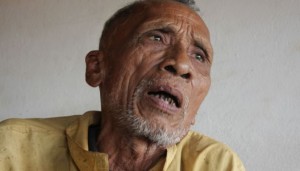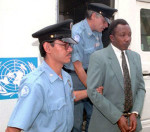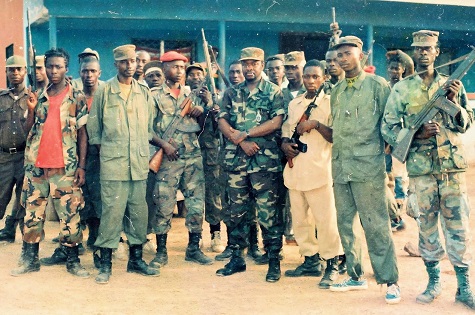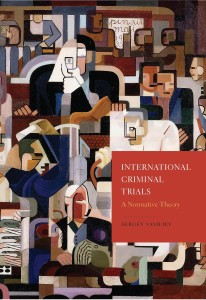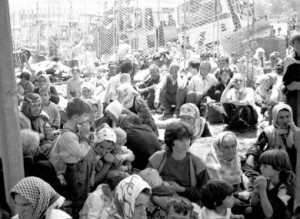
Refugees from the eastern Bosnian enclave of Srebrenica wait for transportation on 12 July 1995 ©AP/Press Association Images
Bosnia’s constitutional court has ruled against the further release of war crimes convicts whose verdicts were quashed for misuse of criminal provisions. More than 20 war crimes cases were found to be invalid as it was ruled that the Bosnian criminal code was wrongly used at their trials, instead of the Yugoslav criminal code, which was in force at the time that the crimes were committed.
The retrials were ordered by the Bosnian Court after the European Court of Human Rights (ECtHR) in Strasbourg ruled in July 2013 that the Bosnian court used the wrong criminal code in Maktouf and Damjanovic. Following the ECtHR decision, several appeals were filed to the constitutional court, leading to the controversial release of convicts. Novak Djukic, one of these convicts originally sentenced to 20 years in prison for ordering an artillery strike on the town of Tuzla that killed 71 people, shortly absconded to Serbia after his release, therefore eluding from retrial.
As a result, the Bosnian court decided to block further release until retrials are completed, including the ones of Milorad Trbić, convicted of involvement in the Srebrenica genocide, and Ante Kovac, jailed for war crimes in Vitez in 1993.
Meddzida Kreso, the president of the Bosnian court, stated that the quashing of these verdicts was the biggest challenge for her institution over the past year because “the legal framework for the execution of imprisonment sentences and custody measures ceased to exist in the case of persons who were sentenced for the gravest violations of the international humanitarian laws”.

